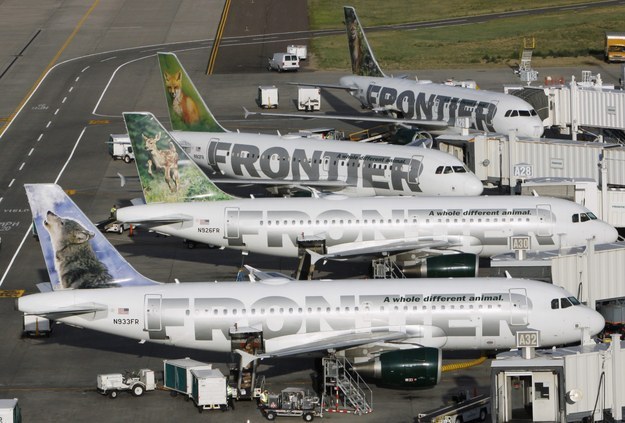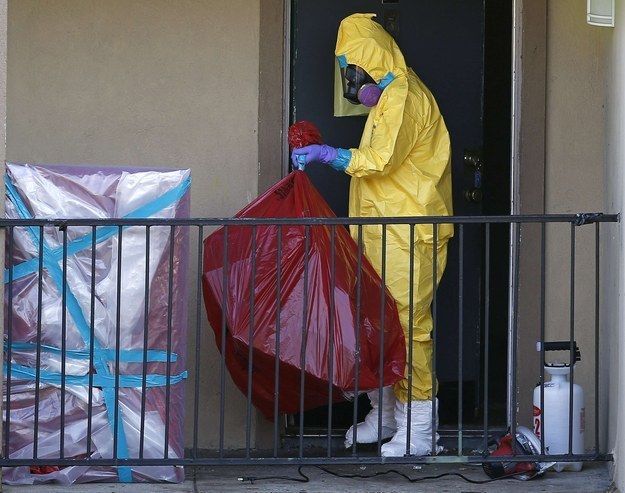
The second health care worker to be diagnosed with Ebola in Texas boarded two flights after she was infected with the virus, prompting Frontier Airlines to take the airplane she had traveled on out of service.
Airline officials previously said she did not show any symptoms of Ebola at the time she traveled, making it unlikely that she was contagious.
"The risk of spreading Ebola to passengers or crew on an aircraft is low because Ebola spreads by direct contact with infected body fluids," Centers for Disease Control guidelines said. "Ebola does not spread through the air like flu."
Now, even though risks are low, the CDC will be limiting travel for others who have had contact with Ebola patients in Dallas.
Even before this week's developments, the CDC has recommended cabin and cleaning crews take precautions against infectious disease.
"As flight attendants, we all understand the risks associated with the role we have on the aircraft as first responders," said a statement from Association of Flight Attendants. "It is particularly important that during this time of heightened awareness, you are also protecting yourselves in addition to your passengers."
Here's what experts recommend to prevent disease from spreading through air travel.
Flight attendants should monitor passengers for symptoms before and during flights.
Passengers who are sick should be asked if they've traveled to Guinea, Liberia, or Sierra Leone in the last 21 days, the CDC said. Flight attendants should look for symptoms including high fever, severe headache, nausea, or abdominal pain, the flight attendants' union added, and any potential cases of Ebola should be reported to the captain.
"A U.S. Department of Transportation rule permits airlines to deny boarding to air travelers with serious contagious diseases that could spread during flight, including travelers with possible Ebola symptoms," the CDC said.

Any bodily fluids should be treated as if they were infectious.
That means wearing waterproof gloves when touching sick patients, and if the sick passenger has traveled from a country with Ebola, any flight attendant treating him or her should wear more extensive protective gear, the CDC said.
Flight attendants should try to reduce the risks to other passengers and crew members.
Minimize the number of people with direct contact to the sick passenger and keep interactions brief, the CDC recommended. Separate the passenger from others if possible, and take steps appropriate to their illness.
Passengers who are coughing, for example, can be provided masks. Anyone with a gastrointestinal infection should be seated near the lavatory.
Hand washing is still one of the best defenses.
Scrub with soap for at least 20 seconds, especially if hands are visibly dirty. Hand sanitizer is also acceptable, but not as effective.

Cleaning crews should be prepared to deal with potential biohazards.
Cleaning crews should wear disposable protective equipment when dealing with a plane on which a passenger may have had Ebola, the CDC said.
Cleanser should be used on all lavatory surfaces as well as on and around their seat. If soft surfaces, like a seat cushion or carpet, are visibly dirty, they should be treated like a biohazard, the CDC said. But if they're not obviously dirty, no special cleaning is necessary.
One other note: Compressed air or pressurized water can send droplets containing the virus into the air. These cleaning methods should not be used, the CDC said.
The CDC guidance in this setting outlines the need for what is called controlled movement. That can include a charter plane, a car, but it does not include public transport. We will from this moment forward ensure that no other individual who is being monitored for exposure undergoes travel in any way other than controlled movement.
